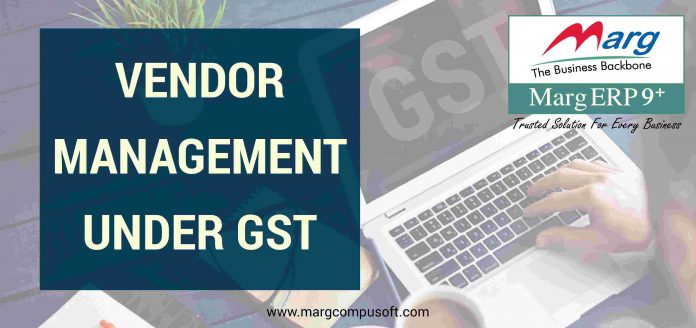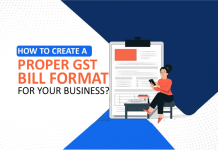GST is not a tax reform but a business reform- We are sure you must have heard or read this statement many times in the last one year.
GST will change the way business decisions are made regarding vendors selection and procurement of goods or services. India will be one market and entry barrier on account of tax exemptions and tax rate will no longer be applicable. Check posts will go away and entry tax will get merged in GST. Removal of cascading effect due to non-credit among prevailing indirect taxes is expected to reduce the prices of goods and services in many cases. This would require reconsideration of your existing vendor base and procurement policy.
7 Reasons Why You Shouldn’t Ignore GST Impact on Vendor Management.
1. Procurement from registered vendors will be cheaper.
The basic structure of GST is to create a seamless credit mechanism across the supply chain till the final consumption of goods or services. This would be possible only when you are procuring goods or services from the registered vendor. When you’ll compare the prices of a registered and unregistered vendor, you would find that price of registered vendor comes cheaper and the simple reason is that he is able to pass on the GST paid while procuring the goods being supplied to you. However, in case of unregistered vendor, he’ll not be able to take the credit of GST paid while procuring the goods and the same shall be loaded in the cost of goods being supplied to you.
2. Reverse charge liability for procurement from unregistered vendors
Another reason, why you should procure from a registered vendor only is that you would be required to pay the GST on all the supplies procured from the unregistered vendors under reverse charge basis. This will increase your compliance cost significantly. Further, you would be required to ascertain the GST rate for the specific goods or services procured from the unregistered vendors.
3. Avoid procuring from vendors who are availing composition scheme
Goods from the vendor who has opted for composition would be expensive for two reasons:
i) The vendor is not able to take the credit of GST paid on raw material or finished goods which are being supplied to you and the same will constitute the cost of goods.
ii) 1% tax levied by the vendor will not be available as input credit to you.
You would be required to carry out the cost benefit analysis for all the supplies from the vendor availing the composition scheme. In some cases, the goods supplied by such vendor might be cheaper because of the logistic reason, the proximity to your location.
4. Unorganized vendor is not likely to pass on the price benefits due to GST
There is one more category of vendors which you need to deal effectively – the Unorganized Sector. The vendors might be registered but may not be willing to pass on the reduction in GST rate or benefits on account of input tax credit. The companies should start engaging with their vendors in this sector early on to understand their preparedness for GST.
Further, any delay or error in depositing GST by the vendors will lead to multiple reconciliation issues.
5. Agreements or contracts with vendors require relook
It’s important to review the terms and conditions related to indirect taxes in the agreement with vendors. One very important clause should be inserted in the contract which relates to passing on the benefits on account of reduction in rate of tax or input tax credit. There is a separate Section 171 in the Central GST Act,2017 which requires every taxpayer to pass on any reduction in rate of tax on any supply of goods or services or the benefit of input tax credit.
Further, Purchase Order should specifically mention that either the GST amount will be paid after the vendor has deposited the GST and filed the return or vendor will bear the interest and penalty due to reversal of credit because of delay or error in depositing of GST/Return by the vendor.
6. Practice of making advance payment to be restricted
In the GST regime, a supplier is liable to deposit the GST on any advance payment received for supply of goods or services. However, the tax payer who is making such advance payment can not avail the input tax credit unless all the four conditions of availing the input credit are satisfied. This mismatch will create timing difference between payment of GST and availment of input credit. Additionally, reconciliation issues will crop up because of this time lag. So, it’s advisable in the beginning to avoid making advance payment to the vendors, to the extent possible.
7. Vendor selection strategy
So far, vendor selection strategy was largely based on the indirect tax benefits as seamless credit was not allowed between State and Central Indirect taxes. Under GST, whole India will be one market and rates of taxes would also be same. In addition to cost and quality of goods or services, some other criteria for vendor selection can be as below:
Check the compliance rating of vendors. It will take some time before the compliance rating starts reflecting in the public domain which is expected to be largely based on the criteria like timely deposit of taxes and returns.
Logistic cost for supply of goods or services
Category of GST registration of vendor, i.e. Registered, Unregistered, Composition Scheme etc.
In short, it’s a high time that you gear up to take control and assess your vendor management strategy to insulate your business from the potential risks.









































